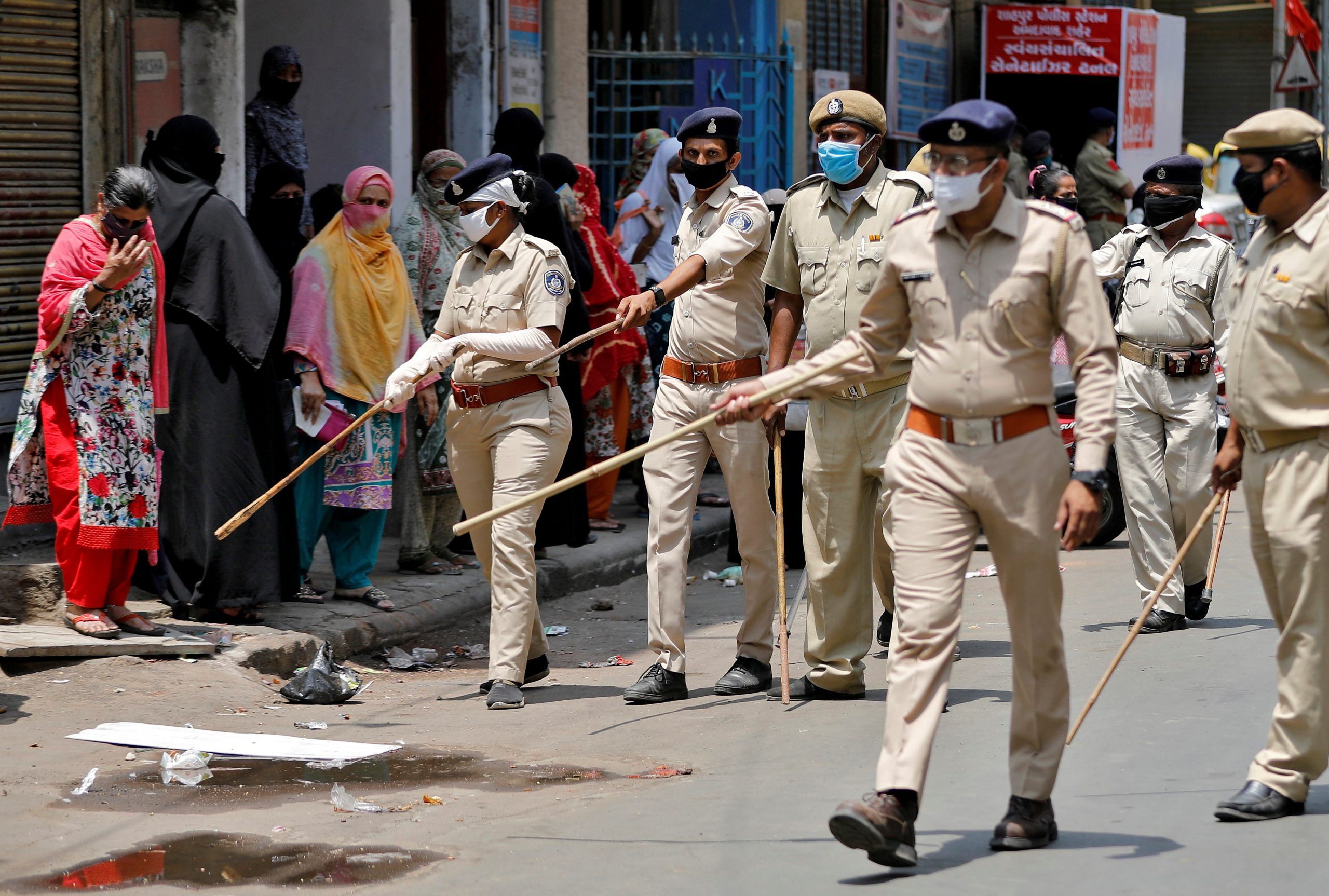Indian security forces resorted to tear gas on Tuesday to halt thousands of farmers’ march towards New Delhi after talks with the government failed, escalating tensions in the ongoing agrarian unrest.
In scenes broadcasted by local media, thick clouds of tear gas enveloped the vicinity near Ambala, about 200 kilometers north of the capital, as security personnel attempted to disperse the demonstrators.
The authorities, anticipating the protest, fortified highways leading to New Delhi with metal spikes, cement barriers, and steel barricades.
“We have deployed maximum numbers,” affirmed Ranjay Atrishya, assistant commissioner of Delhi Police, in a statement to AFP, underlining the scale of security measures implemented to manage the situation. Additionally, a ban on gatherings of more than five individuals was enforced within the capital.
The agricultural sector, which sustains two-thirds of India’s 1.4 billion population and contributes nearly a fifth to the GDP, wields considerable political influence. Columns of hundreds of tractors were witnessed advancing towards New Delhi from Punjab, Haryana, and Uttar Pradesh.
Expressing frustration, Sarwan Singh Pandher, a prominent union official from Punjab, lamented the government’s reluctance to address farmers’ concerns through dialogue, stating, “We tried our best to solve our problems through discussions with the government, but they are insistent on oppressing us.”
Critics, including Randeep Surjewala, an opposition Congress MP from Haryana, condemned the government’s heavy-handed tactics and urged authorities to prioritize farmers’ demands. “The government should listen to the farmers instead of using tear gas shells and guns against them,” Surjewala emphasized.
The ongoing protests echo the fervor of demonstrations in January 2021 when farmers breached barricades and converged on New Delhi during Republic Day celebrations. These protests stem from discontent with agricultural reform bills proposed by Prime Minister Narendra Modi’s government in November 2020, perceived as favoring private corporations over farmers’ interests.
While Modi’s administration repealed the contentious laws in November 2021, tensions persist amid longstanding challenges facing Indian farmers, including poverty, debt, and climate change-induced crop failures.











